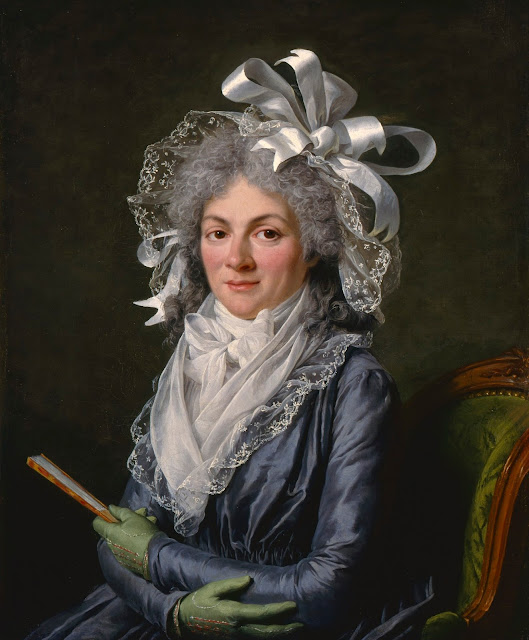 |
| Jean-Antoine Watteau The Perfect Accord ca. 1719 oil on panel Los Angeles County Museum of Art |
"Something else that's no less shocking: the minor customs of civilized people. The rituals of courtesy, so attractive, pleasant, and admirable in the world, are disagreeable in the arts of imitation. It's only on firescreens that women can bend their knees and men gesture gracefully with their arms, tip their hats, and step delicately backwards. I know very well that Watteau's paintings will be cited as counter-examples, but I scoff at them and will persist in doing so. Strip Watteau of his color, the grace of his figures, that of their clothing; then look at the scene depicted, and judge for yourself. . . . To the platitude of our curtsies and bows add that of our clothing; our ruffled sleeves, our garters, our monogrammed buckles, our pointed shoes. I defy painters and sculptors of even the greatest genius to turn this paltry system to advantage. What a thing would be a marble or bronze version of a Frenchman in his buttoned jerkin, his sword, and his hat!"
– Denis Diderot, from The Salon of 1765, translated by John Goodman (Yale, 1995)
 |
| François Boucher Monument to Mignard ca. 1735 oil on canvas Los Angeles County Museum of Art |
 |
| François Boucher Pastoral confidences ca. 1745 oil on canvas Los Angeles County Museum of Art |
 |
| Noël Hallé St Anne revealing to the Virgin the prophecy of Isaiah 1749 oil on canvas Los Angeles County Museum of Art |
 |
| Joseph-Marie Vien Venus emerging from the sea ca. 1754-55 oil on canvas Los Angeles County Museum of Art |
 |
| Carle van Loo The Three Graces ca. 1763 oil on canvas Los Angeles County Museum of Art |
 |
| Nicolas-Guy Brenet Aethra showing her son Theseus the place where his father hid arms 1768 oil on canvas Los Angeles County Museum of Art |
"Brenet is a good-natured fellow who does his best and who'd do better if he were rich, but he's poor. He has the business of all the village priests; they pay him and he gives them satisfaction. He gets by, his wife has petticoats, his children have shoes, and his talent is wasted away. "Men do not easily rise whose poverty hinders their true merit; the task is even more difficult in Rome than elsewhere" (Juvenal, Satires). A maxim that holds true everywhere on earth. Life's demands impose themselves upon us imperiously, waylaying talents by obliging them to perform tasks foreign to them and often degrading those that chance had properly employed. This is one of the disadvantages of society for which I know of no remedy."
– Denis Diderot, from The Salon of 1767, translated by John Goodman (Yale, 1995)
 |
| Nicolas-Guy Brenet Isaac blessing Jacob 1768 oil on canvas Los Angeles County Museum of Art |
 |
| Hubert Robert Stair and Fountain in the Park of a Roman villa ca. 1770 oil on canvas Los Angeles County Museum of Art |
 |
| Jacques-Antoine Beaufort The oath of Brutus ca. 1771 oil on canvas Los Angeles County Museum of Art |
 |
| Jean-Bernard Restout Aeneas and Dido fleeing the storm ca. 1772-74 oil on paper, mounted on canvas Los Angeles County Museum of Art |
 |
| Charlotte Eustace Sophie de Faligny Damas Still life 1780s oil on canvas Los Angeles County Museum of Art |
 |
| Adelaide Labille-Guiard Portrait of Madame de Genlis 1790 oil on canvas Los Angeles County Museum of Art |
 |
| Jean-Baptiste Greuze Portrait of a lady in Turkish fancy dress ca. 1790 oil on canvas Los Angeles County Museum of Art |